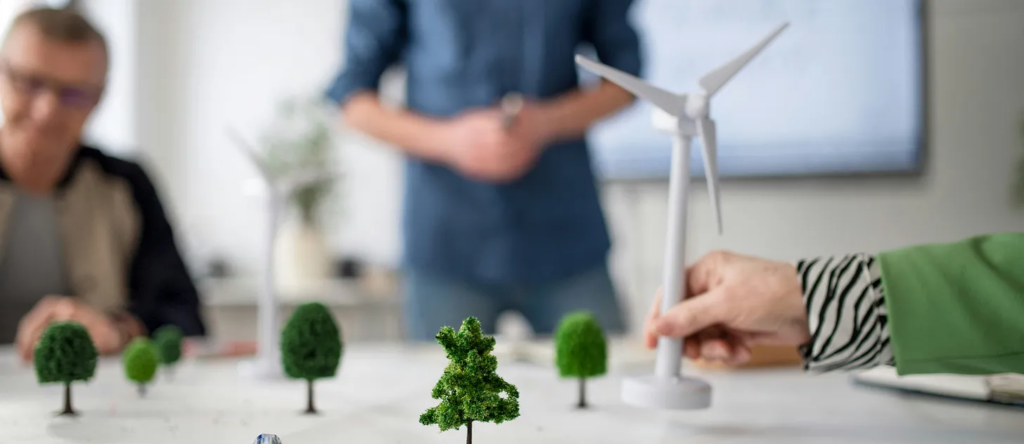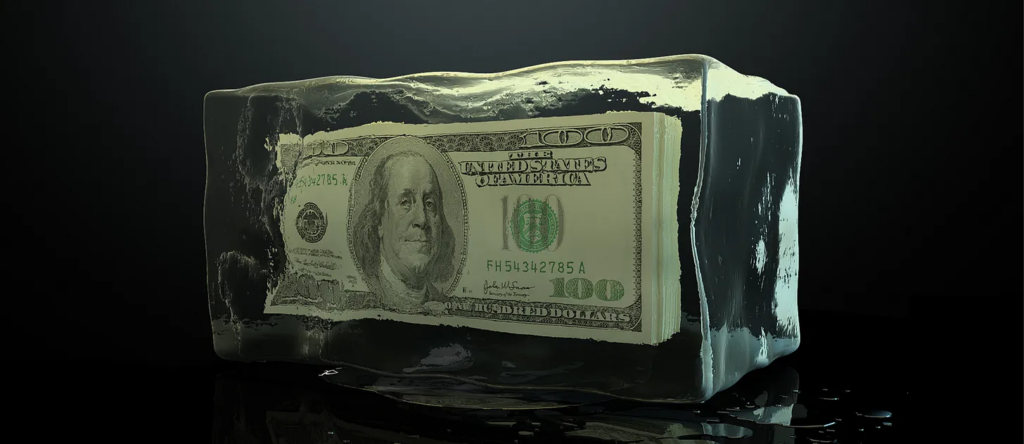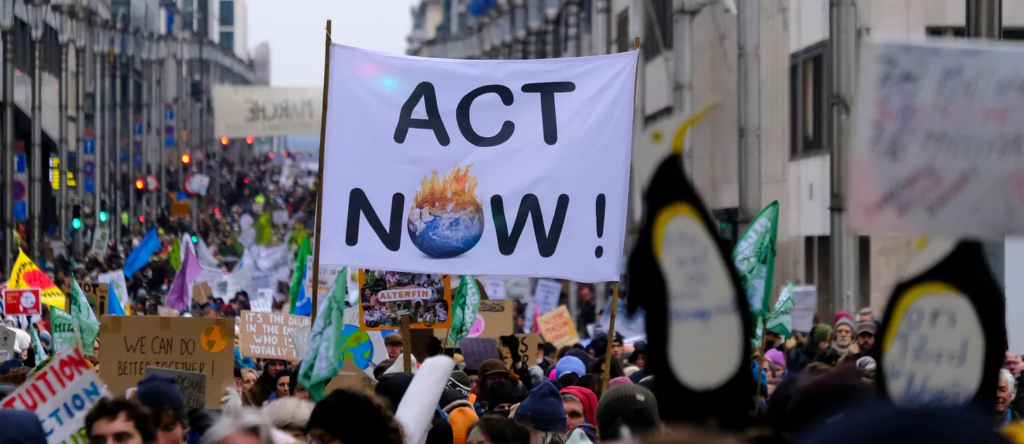"another amazing Christian, this time the woman, Professor Katharine Hayhoe"
Extreme Temperature Diary- Sunday February 9th, 2025/ Main Topic: Talking Climate with Katherine Hayhoe – Guy On Climate
Dear Diary. Yesterday we delved into some of the latest science behind sea ice trends. Did you know that some climate scientists take the time to write a summary entailing latest research on sea ice and all other things related to our climate?
Dr. Katharine Hayhoe writes some of the best summaries. I am sharing her latest for our main topic today:
talkingclimate.ca
Melting ice & frozen grantsBusinesses step up, U.S. science stalls, and why guilt isn’t the answer  Katharine Hayhoe Katharine Hayhoe
Feb 05, 2025
We already know that 2024 was the warmest year on record, beating out the previous record holder, 2023. Now, the 2024 Arctic Report Card shows that, at the end of the summer melt season in September, Arctic sea ice was the sixth lowest in recorded history. Meanwhile, Antarctic sea ice maximum hit its second lowest level since record-keeping began in 1979.
As I explain in this Global Weirding episode, what happens in the Arctic (and Antarctic) doesn’t stay there: it disrupts our weather patterns and even amplifies global warming.
GOOD NEWS
Many of the world’s biggest companies are doubling down on their commitments to climate action and renewable energy. Why? Because these businesses see the harm climate change will cause to their bottom lines and the economic upsides to green power, and they’ve already sunk billions into these projects.
“The leading companies of the world are going through the tech transformation and the climate transformation,” said Jesper Brodin, the CEO of the Ingka Group (IKEA). “The train has left the station. The benefits are clear.” Clear, too, are the risks of inaction: a report from last year found that companies that fail to adequately prepare for climate impacts could see their earnings drop up to 25 percent by 2050.
IKEA is a climate success story: it has slashed its carbon footprint by 30 percent in the last ten years while growing its profits 24 percent over the same period. “There is a very strong myth in society today that climate smart comes at a premium,” Jesper told Time. “Now, it’s quite easy to dismantle that myth.”
Want to know more about sustainable businesses? Corporate Knights has just released its 2025 ranking of the world’s 100 most sustainable companies. The list includes manufacturing, power generation, transportation and more.
NOT-SO-GOOD NEWS In the United States, science and federally-funded work on climate and nature took major hits last week. Grant reviews at the National Science Foundation and study sessions at the National Institutes of Health were paused, disrupting basic science research and clinical trials, some of which could mean life or death to participants. Some early-career researchers at NSF have also seen their salaries frozen. And while no formal announcement has been made, the authors of the first U.S. National Nature Assessment (NNA), scheduled for publication next year, were notified the assessment had been stopped immediately. In the United States, science and federally-funded work on climate and nature took major hits last week. Grant reviews at the National Science Foundation and study sessions at the National Institutes of Health were paused, disrupting basic science research and clinical trials, some of which could mean life or death to participants. Some early-career researchers at NSF have also seen their salaries frozen. And while no formal announcement has been made, the authors of the first U.S. National Nature Assessment (NNA), scheduled for publication next year, were notified the assessment had been stopped immediately.
The most recent National Climate Assessment concluded that climate change “is disrupting agricultural production and food systems, and is projected to reduce the availability and affordability of nutritious food.” Yet, the U.S. Department of Agriculture was ordered to remove all mentions of climate change from the agency’s websites. The Solar to All program—intended to equip nearly a million low-income homes with solar panels, saving them $350 million in utility bills—was paused indefinitely. And the cuts go on: Drilled Media maintains an updated list here.
The damage caused by these delays is real, to both science and climate action. ”This is how we lose huge amounts of scientific capacity, scientific capacity we as a collective have already invested huge amounts of time and money in,” LSU geologist Adam Forte explains here. It’s also “a tragic loss for climate action,” as James Temple writes in the MIT Technology Review.
Despite these setbacks, many NNA authors, who are volunteers, remain committed to moving forward. State efforts like California’s Single Family Solar Homes programs continue. And research on climate change, food production, and sustainable solutions remains active, with organizations like The Nature Conservancy leading efforts to build climate-resilient, nature-positive food systems.
But there’s no denying that U.S. federal leadership plays a critical role. Without it, progress slows, and the consequences—especially for vulnerable communities—are real.
WHAT YOU CAN DO It’s easy to feel guilty when we realize how our choices—where we get our energy, what we eat, what we buy—contribute to climate change. But as I write in Saving Us, while fear and guilt can motivate us to change, both of these emotions will shut us down if we carry them with us long-term. So my recommended action this week is a little unusual: I want you to ditch the guilt! It’s easy to feel guilty when we realize how our choices—where we get our energy, what we eat, what we buy—contribute to climate change. But as I write in Saving Us, while fear and guilt can motivate us to change, both of these emotions will shut us down if we carry them with us long-term. So my recommended action this week is a little unusual: I want you to ditch the guilt!
Environmental journalist Mary Heglar describes a familiar scene: at a dinner party, when she introduces herself as an environmentalist, the person beside her mutters, “You’re gonna hate me…” as they rattle off their eco-sins—using plastic bags, eating meat. And they conclude, “… so there’s really no point any more, right?” As she explains, “thisguilt leads to apathy, and apathy is what will seal our doom.”
All too often, our climate conversations focus on individual actions—turn off the lights, recycle, drive less—framing climate action as a personal virtue rather than the systemic challenge it is, she says. But this isn’t just misleading; it’s dangerous. As
Sam Illingworth puts it, “We need systemic change, not consumer guilt.” Real solutions require collective action, he continues: “switching to renewable energy on a large scale, enforcing strict industrial regulations and redesigning cities to reduce dependence on fossil fuels. Without these bigger steps, taken by governments and large organizations, we can’t make real progress in tackling climate change.”
That doesn’t mean individual actions don’t matter. They do—but as expressions of our values, not in response to personal guilt. Just as abolitionists boycotted cotton and sugar to align their lives with their beliefs, our choices—what we support, where we push for change—matter, and they can be contagious and help build momentum too.
So instead of feeling guilty and letting that paralyze you, take action. Whatever you do, it will not be perfect, and it won’t be sufficient: but it will make a difference. Review my list of the most effective things an individual can do about climate change. Join an organization to advocate for change. Take note where you work or study to see what changes they’ve already made and what more you could suggest. Check out past issues of this newsletter for more suggestions. And most importantly, don’t forget to talk about it—because that’s how we make climate action contagious!
Thanks for reading Talking Climate! Subscribe for free to receive new posts and support my work.
Go to this link to subscribe: talkingclimate.ca
Here are more “ETs” recorded from around the planet the last couple of days, their consequences, and some extreme temperature outlooks, as well as any extreme precipitation reports: |
|




